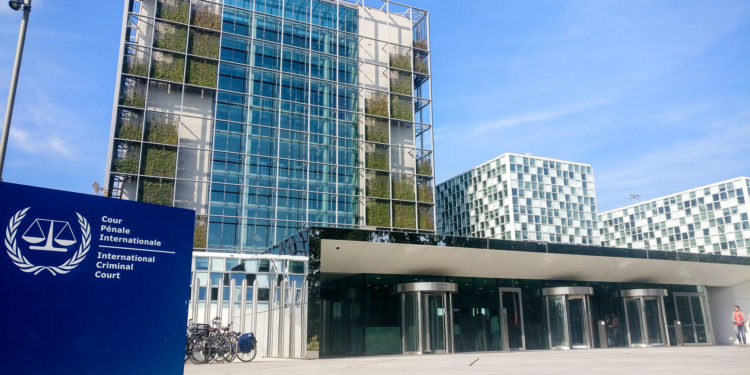By Luis Moreno Ocampo, founding ICC chief prosecutor
Where should the prosecutor at the International Criminal Court (ICC) open new investigations? The answer to that question will define the next 10 years of international criminal justice, and the upcoming 18th Assembly of States Parties (ASP) to the Rome Statute could play a substantial role in how those decisions are reached.
The issues to be decided are highly complex, involving factual, legal and
political aspects: Should the ICC Prosecutor open an investigation into
Venezuela following a referral by six states parties? Should the Office of the
Prosecutor (OTP) open an investigation in Ukraine that could also target Russian
personnel? Should it open an investigation about settlements in the West Bank,
including East Jerusalem? Should it investigate the new allegations about
Colombian armed forces bombing civilians? Should it investigate allegations
against UK personnel in Iraq, especially after the recent BBC documentary
suggesting a cover-up?
The complexity of the decisions should not affect the Rome Statute’s legal architecture defining which are the organs responsible for various actions. The Prosecutor, is the gatekeeper of the Rome Statute,[1] and has the mandate to take the first decision on where and when the ICC should intervene. The Chambers make final decisions based on the facts and the law, without infringing on the Prosecutor’s authority or taking into consideration political factors. States parties have the obligation to cooperate with the investigation. Article 87(7) of the Rome Statute grants the Assembly of States Parties responsibility to manage the failure of the states parties to cooperate with the court.
The Office of the Prosecutor developed a specific technical area to identify situations under the jurisdiction of the court, clear standards and a transparent process. The evaluation is conducted by the Situation Analysis Section, a policy paper on preliminary examinations defined in detail the procedure to apply in following the Rome Statute. Since 2011, the Office has been publicly publishing a report each year summarising its findings on the different situations under analysis. All the decisions adopted, opening and dismissing situations, were taken by scrupulously respecting the legal parameters. The most innovative to date, the Rohingya displacement into Bangladesh, was adopted after consultation with the Chambers.
Suggestions that the Colombia preliminary analysis should be concluded ignore the legal framework within which such examinations occur. The admissibility of the situation requires the evaluation of ongoing national proceedings. Colombia conducted, and is conducting, thousands of proceedings against paramilitaries, guerrillas and members of the armed forces. Besides, Colombia demobilised thousands of members of those groups respecting the Statute. Colombia is the best example of peace and justice working together.
As gatekeeper, the Office of the Prosecutor has two different and parallel duties: to fully respect the principle of complementarity and refrain from opening investigations when national authorities have conducted genuine proceedings, but also to ensure the “end of impunity” and trigger the jurisdiction of the court when they fail to do so. There are no time limits, and new factors should be included. The Colombia’s preliminary examination carried out since 2004 evaluating thousands of judicial proceedings and the peace negotiations with the paramilitaries and the Fuerzas Armadas Revolucionarias de Colombia (FARC) shows how carefully the Office of the Prosecutor has to strike a delicate balance in carrying out its role.
The OTP requested to open an investigation in Afghanistan more than two years ago. After a year and five months of analysis, the Pre-Trial Chamber declined to authorise an investigation in Afghanistan. The decision affected the Rome Statute’s legal architecture. It was infringing on the authority of the Prosecutor to decide on the budget of her office, it was based on a political factor and without factual support: “Changes within the relevant political landscape both in Afghanistan and in key States (both parties and non-parties to the Statute), coupled with the complexity and volatility of the political climate still surrounding the Afghan scenario, make it extremely difficult to gauge the prospects of securing meaningful cooperation from relevant authorities for the future.” The decision is under review by the Appeals Chamber. Hearings on the numerous amicus curiae submissions will be held in December, during the ASP session.
The next Assembly of States Parties will be a test: It provides an opportunity to the states parties to dissipate the assumption of the Pre-Trial Chamber that they will not cooperate. Thirty-nine states parties were part of the International Security Assistance Force (ISAF) deployed in Afghanistan. During the Assembly the representatives of each of those states would have the opportunity to express their willingness to cooperate and to provide the information in their possession.
There is an option at any moment for any of the 122 states parties to end this saga: a referral from one country would suffice to open the Afghanistan situation. Several countries could join forces, like for the historical Venezuela referral.
The
political challenges confronting international criminal justice around the
world should be faced by the states parties; not by the judges or the
Prosecutor.
[1] Héctor Olásolo, The prosecutor of the ICC before the initiation of investigations: A quasi-judicial or a political body?, 3 Int’l Crim. L. Rev. 87, 90 (2003) .







